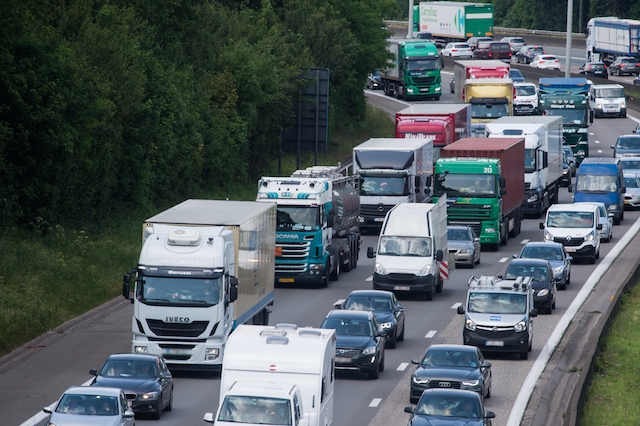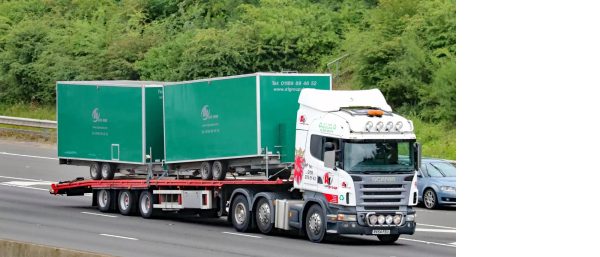HGV drivers are integral to modern commerce. From the long-haul drivers who take goods across vast distances to regular company drivers who deliver goods to corner stores, they are vital to getting supplies where they are needed.
 HGV driving can be a hugely rewarding career. Unfortunately, it also brings its own unique challenges. For some HGV drivers, these challenges are becoming overwhelming. It is therefore a priority to address them to avoid a recruitment and retention crisis.
HGV driving can be a hugely rewarding career. Unfortunately, it also brings its own unique challenges. For some HGV drivers, these challenges are becoming overwhelming. It is therefore a priority to address them to avoid a recruitment and retention crisis.
With that in mind, FleetEx share their insight into the current world of HGV drivers.
Life on the road isn’t for everyone
Working as an HGV driver can enable drivers to see places they might never otherwise have visited. On the flip side, however, this requires them essentially to live on the road and this isn’t for everyone. If you’re familiar with camping or even hostelling, you may not think it would be particularly challenging to manage practicalities such as sleeping, eating and hygiene. In reality, however, there are many reasons why this can be difficult.
Sleeping
HGV routes are not tourist routes and HGVs are not regular cars. They’re not even caravans. They are large vehicles that may contain valuable (or dangerous) cargo. As such, there are strict limitations on where they can be parked. This means that there are limitations on the places where drivers can sleep.
Where services such as hotels are, technically, available, it may be a matter of luck as to whether or not they are able to accept bookings when drivers need them. This has become more of a problem since COVID as some facilities closed for lockdown but did not reopen.
Even if drivers can book rooms, they may still have to deal with high levels of noise and light pollution. Drivers who sleep in their trucks will almost invariably have to deal with these. They may also struggle to get comfortable enough to sleep. This may partly be due to the physical issues of being squeezed into the cramped space in a truck. It may also be due to the psychological feeling of insecurity.
Eating
Storing, preparing and cooking food are all challenging activities on the road. If you’re crossing international borders you may have to get rid of any fresh food, you have before you enter the new country. Eating on the road isn’t always easy either, particularly not if you have to keep to fairly strict timetables as many HGV drivers often do.
Service stations used to be able to make up for this, at least to some extent. Again, however, they have not all reopened post-COVID. This can leave drivers heavily reliant on convenience foods which often have very little nutritional value. Eating convenience foods regularly can leave drivers fatigued and with weakened immune systems.
Hygiene
Keeping clean and finding places to use the toilet can be two of the biggest challenges facing HGV drivers. Maintaining proper hygiene is essential for both physical and mental health. If drivers cannot get access to the facilities, they need for this, then they will become physically (and probably mentally) uncomfortable. This can make it harder for them to concentrate on the road.
There is still a shortage of HGV drivers
The lack of qualified HGV drivers in the UK can lead existing drivers to feel under pressure to take on more work than they would ideally like.
Company drivers know that their employers cannot tap into the EU labour pool as they did before Brexit. They may therefore feel obliged to pull extra weight for their (small) team. Owner-operators may simply feel uncomfortable turning down work, especially if they are not confident about what the future will hold.
Added to this is the fact that the UK has not yet quite found its “new normal” post-COVID and/or post-Brexit. Travelling through Kent may no longer be total carnage but it’s not yet a seamless transition, particularly not during times such as school holidays. This creates extra work (and stress) when really there should be none (or very little).
Challenges in making financial plans
Forecasting accurately can be a challenge even when circumstances are reasonably stable. Right now, however, it’s really anybody’s guess how high inflation and interest rates will go. It’s also anybody’s guess how much government action will impact the costs of running an HGV business.
For example, fuel duty and the requirements for entering the growing number of clean-air zones can both have a significant impact on the HGV industry. These are both within the control of the (local) government. Technically, it should be safe to assume that the relevant stakeholders will recognise the importance of the HGV sector and ensure it’s protected. Unfortunately, this can never be guaranteed.
This uncertainty can make it very difficult for logistics businesses to plan ahead effectively and hence can cause additional stress for people in the industry.
Mental health challenges
Many of the mental health challenges of HGV driving relate back to the point of life on the road not being for everyone. It’s also fair to say that even people who enjoy it overall may sometimes find it hard to manage. Feelings of isolation can creep up slowly but then become overwhelming.
Right now, HGV drivers are probably more exposed to mental health challenges than ever before due to the additional pressures they are currently facing. In particular, feeling under pressure to take on additional work may prevent HGV drivers from properly resting and recuperating at home as much as they really should.
Tackling these issues
At a high level, all of these issues can be divided into issues companies can resolve directly and issues they can’t. The issues they can’t resolve directly, however, they may be able to resolve through broader influence. Influence tends to be at its strongest when it has the weight of numbers behind it. This means that individual companies are likely to get the best results when they join together in groups such as trade bodies.
Issues directly related to driver health (physical and mental) can, however, often be largely managed by companies themselves. In short, for the time being at least, companies are going to have to work on the assumption that drivers will essentially need to camp in their vehicles. Companies should support them in this by providing space and possibly equipment to make the experience as comfortable as possible.
They should also provide drivers with training on how to manage their physical and mental health and as many resources as possible to do so. For example, companies could offer access to apps such as Headspace and Calmly to help drivers to relax. They can also give drivers guidance on how to get sufficient physical exercise while on the road.
Just taking these measures can help HGV drivers a lot in the short term while industry bodies work with the government on longer-term solutions.



